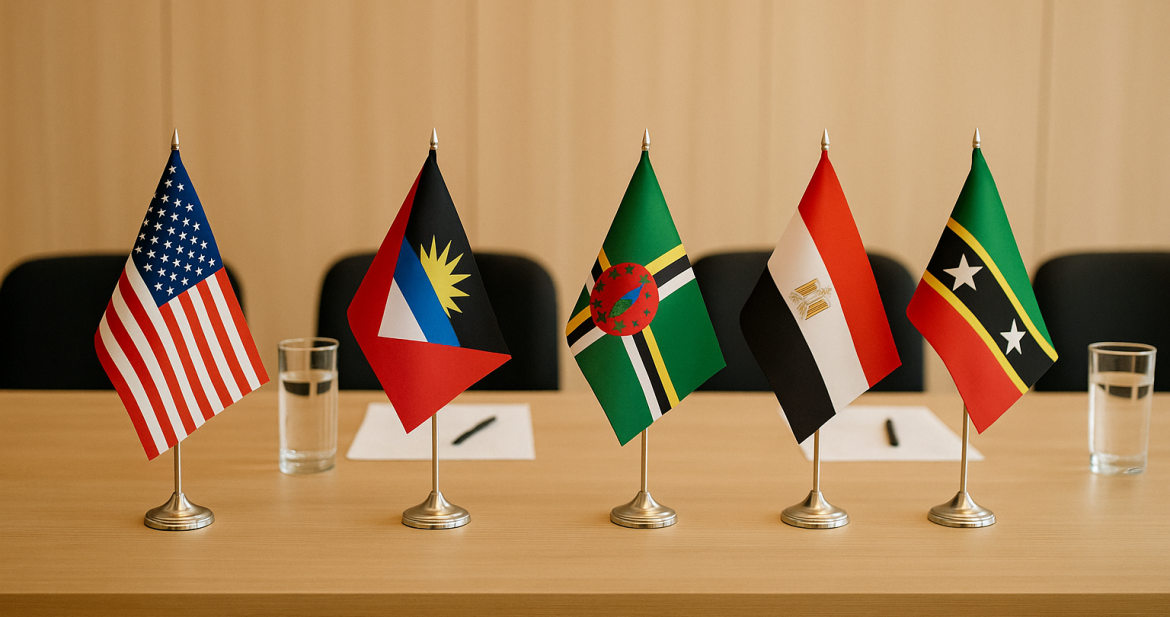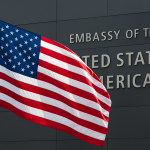In a significant policy development, the United States has identified seven countries operating Citizenship-by-Investment (CBI) programmes in an official travel-ban memorandum issued by the Department of State. The document raises concerns over the security risks posed by investment-based citizenship schemes, particularly those allowing individuals to obtain new passports without sufficient identity verification or residency requirements. While this is not yet a formal visa ban, the inclusion of these nations signals heightened scrutiny and the potential for future restrictions if corrective measures are not taken within a designated timeframe.
Which CBI Nations Are Included?
The seven countries are:
- Antigua and Barbuda
- Dominica
- Saint Kitts & Nevis
- Saint Lucia
- Vanuatu
- Cambodia
- Egypt
These jurisdictions operate prominent CBI programmes. Caribbean nations alongside Vanuatu, Cambodia and Egypt now explicitly referenced in the travel‑ban guidance.
Why Are They on the List?
The memorandum signals concern over:
- Weak vetting systems in identifying true citizenship applicants
- “Citizenship by monetary investment without residency” being cited as a red flag
- Lapses in passport integrity, identity management, and information-sharing
The U.S. memo notes that these programmes may enable individuals to acquire new passports without adequate identification checks—undermining national security.
Scale and Scope
- These seven countries appear among 36 total nations identified in the memo.
- The memorandum acts as a prelude: affected countries now have 60 days to correct deficiencies. Failing this, they may face full or partial visa bans.
- This is not yet a formal travel ban—but a strategic warning designed to pressure compliance.
Notable Observations
- Grenada is not included, despite being the only Caribbean CBI country with a U.S. E‑2 treaty — indicating uneven targeting within the CBI market.
- Inclusion of Egypt and Cambodia highlights that concern isn’t limited to traditional Caribbean CBI programmes.
- The move signals U.S. pivot on alternative citizenship schemes, not merely countries typically singled out in broader travel bans.
What Happens Next?
- Affected countries must undertake identity‑management and vetting improvements within 60 days.
- Should benchmarks remain unmet, Washington could enact partial or full visa suspensions.
- Diplomatic outreach and regulatory reforms may follow, as nations seek to avoid escalation.
This memorandum marks a watershed moment: for the first time, Citizenship‑by‑Investment jurisdictions are formally tied to U.S. travel‑ban policy. It isn’t a visa‑ban decree yet. But it is a clear signal: unless CBI programmes fortify their vetting systems, Washington is ready to act. BLS Global will continue monitoring developments as embassies adjust visa policies in response.





